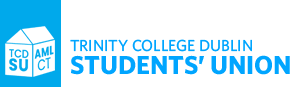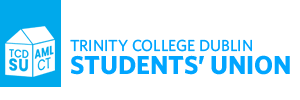Contraception is an important part of having safe sex - it can protect against some STIs and pregnancy when used correctly. There are many ways to have safe sex! Contraception comes in many forms so it’s important to find what works best for you. For an up to date guide on the different options available check onwww.sexualwellbeing.ie!A guide on what you need to know about contraception is availablehere(including in other languages).
Common contraceptives include:
- The pill or mini pill
- Condoms or the female condom
- Diaphragm
- The IUD
- Spermicides
- The Coil
- The patch
- Injectable contraception
- The ring
The HSE provides colleges with free condoms and lubricant for students to avail of. House 6 will always have a stock if you need some!
Free Contraception
Women and people with a uterus aged 17 to 25 can get contraception for free. For more information on what costs are covered and how you can avail of free contraception visitwww.sexualwellbeing.ie.
Emergency Contraception
There are different emergency contraception choices for different situations, depending on when you had your last period and how long it has been since you had unprotected sex or if your contraceptive method has failed. Emergency contraception is more effective the sooner you take it after having unprotected sex.
Ask a pharmacist (chemist) for a private consultation or talk to a doctor or Family Planning Clinic about the best option for you. You can also use this time to discuss regular contraception.
Information on the types of emergency contraception is availablehere.
Consent is where there is free and voluntary agreement to engage in a sexual act with someone else. It is a crime to engage in a sexual act with someone who has not given consent. This law is set out in the Criminal Law (Sexual Offences) Act, 2017.
It is important to know that even if you consent to a sexual act, you are absolutely free to change your mind before the act begins or at any time before it ends.
Remember that Consent isFRIES:
- Freely-given
- Retractable
- Informed
- Enthusiastic
- Specific
Freely Given:
Doing something sexual with someone is a decision that should be made without pressure, force, manipulation, or while drunk or high.
Retractable:
Anyone can change their mind about what they want to do, at any time. Even if you’ve done it before or are in the middle of having sex.
Informed:
Be honest. For example, if someone says they’ll use a condom and then they don’t, that’s not consent. If someone has taken a lot of alcohol or drugs, we can’t be sure we have informed consent.
Enthusiastic:
If someone isn’t excited, or really into it, that’s not consent.
Specific:
Saying yes to one thing (like going to the bedroom to make out) doesn’t mean they’ve said yes to others (like oral sex). Consent is applies to specific acts on specific occasions.
This is a move away from the traditional ‘no means no’ understanding of consent, and it’s important that we as first responders are familiar with this model too.
Together Consent
Together Consent is Trinity College Dublin's sexual consent education programme. Founded in 2016, they began facilitating consent workshops that year. They are proud to be at the forefront of Consent Education in Third Level Education in Ireland.
Information from Student Counselling Services, Trinity College Dublin.
Porn Use
Porn can be a good think: it can be used as a way to relax, as a coping tool and to blow off steam. It can be stimulating and exciting, as well as enjoyable.
But - too much of a good thing? Excessive use of porn can also have a negative impact. It can lead to spending long periods of time online, irgnoring important tasks, retreating from other interested or finding it hard to relate to another person.
The more porn our brain consumes, the higher the response threshold becomes. What used to be satisfying now doesn’t have the same effect and a higher impact is required for a sexual response.
How Do You Engage with Porn?
Porn is a form of entertainment and it’s imporatnat that we are critical of the entertainment we consume.
For example, we might watch a movie like ‘The Fast and the Furious’ for entertainment. We might watch it for the fantasy, a bit of fun, to share with others - but we don’t watch it to learn how to drive.
Porn is the exact same. As a form of entertainment, it’s important to be able to critique what you’re viewing and not take it literally. Ask yourself what does it get right? Representation of sexual identities, sexploring sexualitiy, validate sexual interests, ackowledigng human needs. But aso what is it missing? Conversations about consent, communication, unrealistic standards, contraception, enforcing stereotypes?
Questioning porn helps you better enjoy it. Be aware of what you’re watching and normalise talking about it.
What’s Your Porn Use Like?
Using porn is normal. It is a normal human sexual behaviour, but it’s just as important HOW we engage with it.
Consuming porn responsibly means thinking about what porn means in your life. You engage with it in a way that is consistent with your values. Think about the values and beliefs that you hold around sexuality and sexual behaviours. How does that translate for you with the porn you consume? Ethical porn use is about responsibly and interntionally supporting ethical sexual values (David Ley, Clinical Pschologist).
Two main questions to consider for responsible porn use:
- Am I being responsible about the behaviours I’m normalising myself to?
- Is my porn use disturbing my daily activities or upsetting people I care about?
Concerned about your porn use? Help is availble!
If your porn use is becoming more of a problem than a pleasure - reach out and talk about it.
Find someone you trust and share how you’re feeling with them. It might feel embarrassing or difficult but helpful to have someone who understands in your corner.
You can also find support at Addiction Recovery and Wellbeing Group:
- Every Tuesday 6pm
- Student Counselling Services
- 3rd Floor, 7-9 Leinster Streeth South
EmailThis email address is being protected from spambots. You need JavaScript enabled to view it. if you have any questions!
For more information on porn literacy visit: www.bewiser.ie/talk-about-porn
Unplanned pregnancies can produce feelings of shock, and be an isolating experience especially for students. If you find yourself in this situation contact a GP at the Health Centre, the counselling service or the Welfare & Equality Officer at This email address is being protected from spambots. You need JavaScript enabled to view it. to discuss your options in complete confidence. Pregnancy tests are available at all pharmacies. College Health Service also offers pregnancy tests for €10.
Here are some external supports that you may find helpful:
IRISH FAMILY PLANNING ASSOCIATION
Sexual Health Charity
www.ifpa.ie
This email address is being protected from spambots. You need JavaScript enabled to view it.
01 607 4456
MY OPTIONS
Information including continued pregnancy supports and abortion services
www.myoptions.ie
1800 828 010
WELL WOMAN CENTRE
Range of primary health care services, family planning, counselling and sexual health services
www.wellwomancentre.ie
This email address is being protected from spambots. You need JavaScript enabled to view it.
01 874 9243
College defines sexual harassment as ‘any attempt to coerce an unwilling member of the college into a sexual relationship or to subject such a person to unwanted sexual attention, or to punish a refusal to comply or to create a sexucal intimidatory, hostile or offensive environment’. It includes all forms of harassment from unpleasant remarks to sexual assault.
If you’ve had a non-consensual experience or would like to talk to someone about issues regarding consent you chat with the SU Welfare & Equality Officer (This email address is being protected from spambots. You need JavaScript enabled to view it.), the Student Counselling Team (This email address is being protected from spambots. You need JavaScript enabled to view it.), Niteline, or the College Health Team (www.tcd..ie/collegehealth). All are highly trained, confidential and non-judgemental sources of support.
The ‘What do I do now’ document gives an overview of what to do regarding disclosures of assault and rape in college. Checkbit.ly/SAdisclosuretcd for more information.
Speak Out Tool
Report an incident on the Speak Out tool anonymouslyhere.
Speak Out is an online and anonymous reporting tool for higher education institutions in Ireland. It provides a platform for Trinity College Dublin students and staff to voluntarily and anonymously report, in a safe and secure way, incidents of bullying, cyberbullying, harassment, discrimination, hate crime, coercive behaviour or control, stalking, assault, sexual harassment, sexual assault and rape that you have either experienced or witnessed.
Speak Out is a national initiative led by the Psychological Counsellors in Higher Education Ireland (PCHEI), funded by the Department of Further and Higher Education, Research, Innovation and Science, and supported by the HEA Centre of Excellence for Equality, Diversity and Inclusion. Reporting anonymously using Speak Out means that you will not be asked for your name or any other personal details about you or another person and the University will not take any specific action or commence any formal complaint process.
The Speak Out site collects information on your experiences and that information allows us to develop and deliver initiatives aimed at raising awareness of, and taking steps to eliminate, this type of behaviour in the UCC community. Speak Out also allows the University to direct you to helpful supports and provides information relating to a range of options that can assist you in dealing with incidents of discrimination, bullying, harassment and/or sexual misconduct.
More information regarding the Speak Out tool can be foundhere.
Trinity Student Support
https://www.tcd.ie/equality/speak-out/support/student-support/
External supports
- DUBLIN RAPE CRISIS CENTRE
Support for Survivors
www.drcc.ie
This email address is being protected from spambots. You need JavaScript enabled to view it.
1800 778 888
Support for adult survivors of childhood sexual abuse
www.oneinfour.ie
This email address is being protected from spambots. You need JavaScript enabled to view it.
01 662 4070
- SEXUAL ASSAULT TREATMENT UNIT
Information on all your care options if you have been raped or sexually assaulted
www.hse.ie/satu
Domestic violence support
www.womensaid.ie
1800 341 900
You can book a cervical check smear test or attend Sexual Health Clinics through the College Health Centre. They also run mini screens with a nurse, as well as sexual health clinics with a doctor or nurse.
For more info check the College Health website (https://www.tcd.ie/collegehealth/service/specialised.php) or call them on 01 896 1591 or 01 896 1556.
A sexually transmitted infection (STI) is an infection that is passed on through sexual contact with someone who is infected. Human Immunodeficiency Virus (HIV) is a virus that attacks the human immune system and weakens its ability to fight infection and disease.
The HSE offers free at home STI testing in all 26 counties in the Republic of Ireland. Anyone from the age of 17 with an address in the Republic of Ireland can now order a free home STI test kit online by visiting
sh24.ie. You can order free HIV self-tests at
mpower.hivireland.ie/self-test-about/
How to prevent STIs:
- Use a condom
- Use a dental dam
- Do not share sex toys
- Get vaccinated
- Use PEP is you may have been exposed to HIV
- PrEP if you are HIV negative


